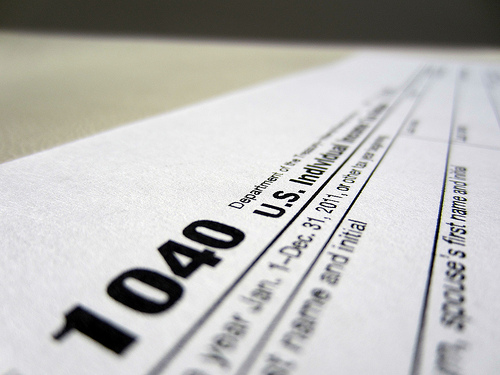Top Tax Tips for Veterans
 When you found out you could file a 1040, the same form civilians typically fill out, you were probably relieved. But then you sat down with the form and realized that, in addition to the gratitude of a grateful nation, you were also rewarded for your service with really complicated taxes. This is no 1040 EZ form. This is a 1040 with schedules and records and wishing upon a star that you don’t accidentally type in a seven when you meant to type in a one.
When you found out you could file a 1040, the same form civilians typically fill out, you were probably relieved. But then you sat down with the form and realized that, in addition to the gratitude of a grateful nation, you were also rewarded for your service with really complicated taxes. This is no 1040 EZ form. This is a 1040 with schedules and records and wishing upon a star that you don’t accidentally type in a seven when you meant to type in a one.
If you were disabled in the line of duty it gets even more complicated.
So what do you do? You want to file correctly. You don’t want to get audited. You also don’t want to have to pay more in taxes than you absolutely have to.
Hiring a Certified Public Accountant to help you with your taxes is one of the best things you can do. CPAs are well versed in current tax laws and will know how to hunt for deductions and credits that you might not have known to look for. A CPA’s job is to make sure that your taxes are done correctly and that you pay as little as possible.
Note: Try to find a CPA who has experience specifically with Veterans’ taxes. This is easier if you live in (or close to) a city with a large number of Veterans per capita. Studio City, for example, has firms like Wallace and Associates. Fairbanks (another city with a large number of Veterans) has a few accounting firms as well. If you don’t live somewhere with a large Veteran population, don’t worry—you’ll still be able to find someone who has the experience you need. You’ll just have to dig a little deeper into the talent pool.
If you don’t have the funds to hire an accountant, don’t panic. Here are some tips to help make filing your taxes a little easier.
Get your hands on a copy of AFTG
The Armed Forces’ Tax Guide will spell out everything you need to know about filing taxes as a Veteran.
Make an appointment with the IRS
Seriously! When you have questions, why not go directly to the source? The IRS is not a scary place and the people who work there would rather you ask your questions ahead of time than simply hope that you don’t make any mistakes. It’s important to understand, though, that while your IRS rep can explain tax codes and rules to you and answer most of your questions, he or she won’t be able to give you advice.
Start early
Yes, the end of the year is still a few weeks away and your taxes won’t be due for a few months after that. Still, it’s important to start getting your paperwork together now. The easiest way to do this is to look at last year’s tax forms and start gathering together the details it asks for. Yes, the tax laws change a little bit every year. They are unlikely to change so significantly that the forms and paperwork you needed last year aren’t relevant anymore. Plus, the earlier you start gathering, the sooner you’ll know whether or not you need to request copies of anything. The sooner you make those requests, the better off you’ll be. The VA, after all, is not known for its swiftness!
Don’t Forget Your State Taxes!
State taxes are figured out separately from federal taxes and every state has its own rules, rates and benefits offered to the veterans who live there. You can find a list of your state’s benefits at Military.com.
Finally, try to stay calm. If you start now, you can take care of details without feeling rushed or overwhelmed. You’ll have time to find help if you need it. Whatever you do, don’t leave this task until next April. Good luck!
Category: Family Finances, Tax Management, Taxes





